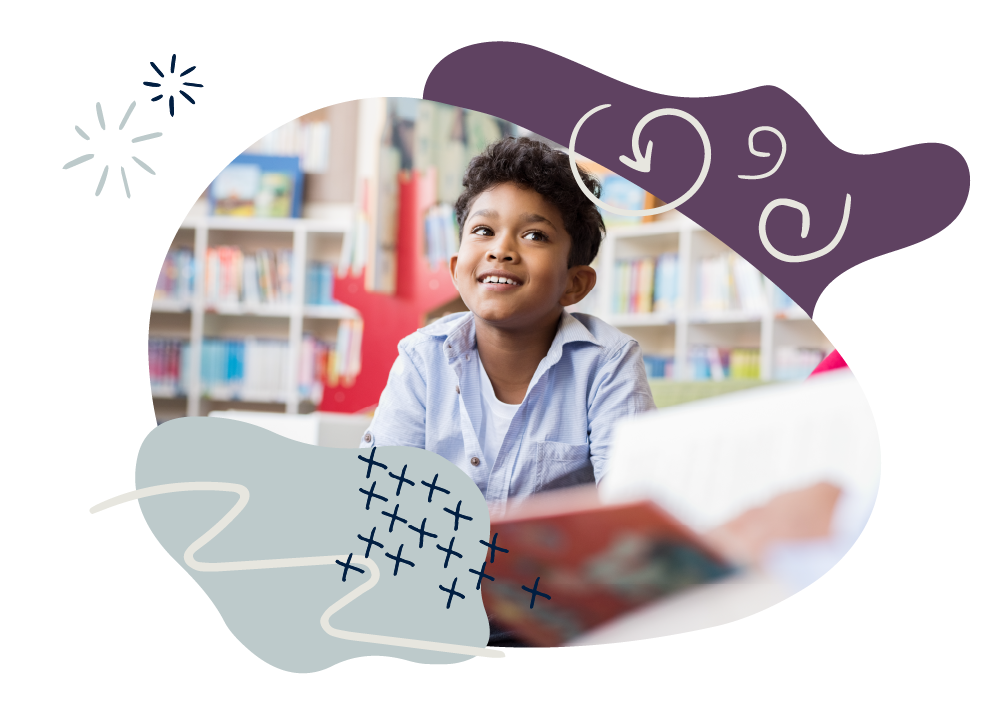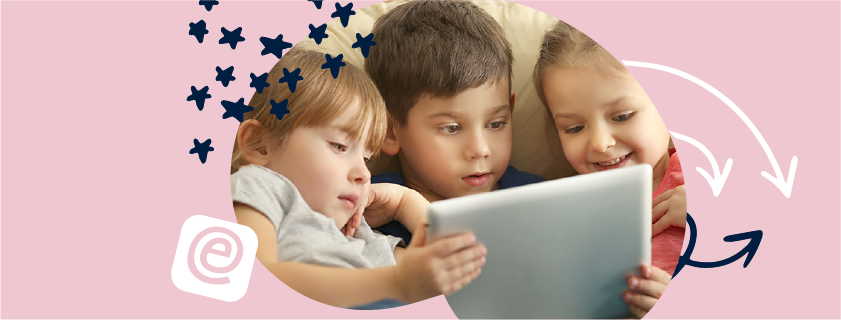Supporting reading in Year 3 (Age 7-8)
By Year 3 (in England) or Primary 4 (in Scotland), your child will hopefully be on the way to becoming a confident, independent reader. Many children who have got to grips with phonics and word-reading will shift their focus onto comprehension. Your child’s relationship with books will begin to change as they can now read for pleasure – fiction and non-fiction – or to find information they need.
How to help at home
There are plenty of simple and effective ways you can help your child with reading in Year 3/Primary 4.
Listen to your child read
Once your child can decode most words, it’s easy to think that the job of learning to read is done. However, reading as often as possible with your child is still a valuable experience. You will be able to help with any unfamiliar words to expand their vocabulary and talk to them about the book to make sure that they understand. You can talk about what has happened in the book, ponder the motives and feelings of the characters, and predict what might happen next. All this will support their developing comprehension skills.
Seeing words in print is also good for your child’s other English skills too – reading aloud helps them to understand the words, to spell them, and to see how grammar and punctuation are used to make meaning.
Encourage reading for pleasure – and don’t judge!
If your child wants to read for pleasure, that’s brilliant. If it’s age-appropriate, don’t worry too much about what they are reading. Do suggest books that you think will stretch, challenge and widen their reading horizons, but don’t stop them reading what they are drawn to: fiction, non-fiction, poetry, monsters, fairies or football. It’s all reading and it’s all good!
If your child doesn’t want to read on their own, maybe search for short books, graphic novels, information books to flick through or joke books. Find out more about encouraging reluctant readers here.
Keep reading to your child
Once your child can read on their own, it is tempting to leave them to get on with their own reading – but reading a book to them can be just as important as encouraging independent reading.
Reading to your child can help them develop language skills and comprehension. This is because it gives them access to books that they can’t yet read independently, such as longer novels. It can improve vocabulary, foster empathy and can be another important opportunity to develop comprehension skills as you discuss the events so far.
For books to read with your child, take a look at our free eBook library.
Listen to audiobooks
Listening to audiobooks can be a great use of time spent in the car. It’s also a way to widen reading experiences. You might like to search for stories read by favourite actors.
Don't give up!
When your child reads more challenging books, there might be times when they struggle and want to stop. Help them through these patches by reading a bit with them to get them started or hooked into the next chapter.
Take it in turns to read a page or take on the role of particular characters or the narrator. Inventing different character voices is a great way to hook them in and distract them when they are feeling frustrated.
Talk about books, stories, words and pictures
Talking about books is a really useful habit to get into. Talk about the characters and what happens in a story, or what specific bit of information was most useful, and ask your child for their opinions too. Let them tell you if (and why) they don’t like a book. Part of growing as a reader is learning that it’s okay not to like books sometimes!
Asking your child open questions that begin with ‘how’ and ‘why’ can help them to think about what they’re reading. Try to get your child to go back to the text and pictures to tell you how they know the answer.
When reading stories, good readers are always thinking ahead to start to work out what might happen next. You can help your child become better at this by asking key questions such as: I wonder if … will happen? Who do you think will…?
Use pictures to discuss stories
Pictures are still a great way for your child to practise their comprehension skills, even as they get older. Many children enjoy graphic novels which need the reader to interpret the pictures as well as the text. There are also interesting picture books aimed at older readers that can lead to interesting discussions. Look for some interesting ideas here.
Free eBook Library
Find a huge selection of free eBooks to encourage your child to read and support their reading journey in our library. Take a look >

